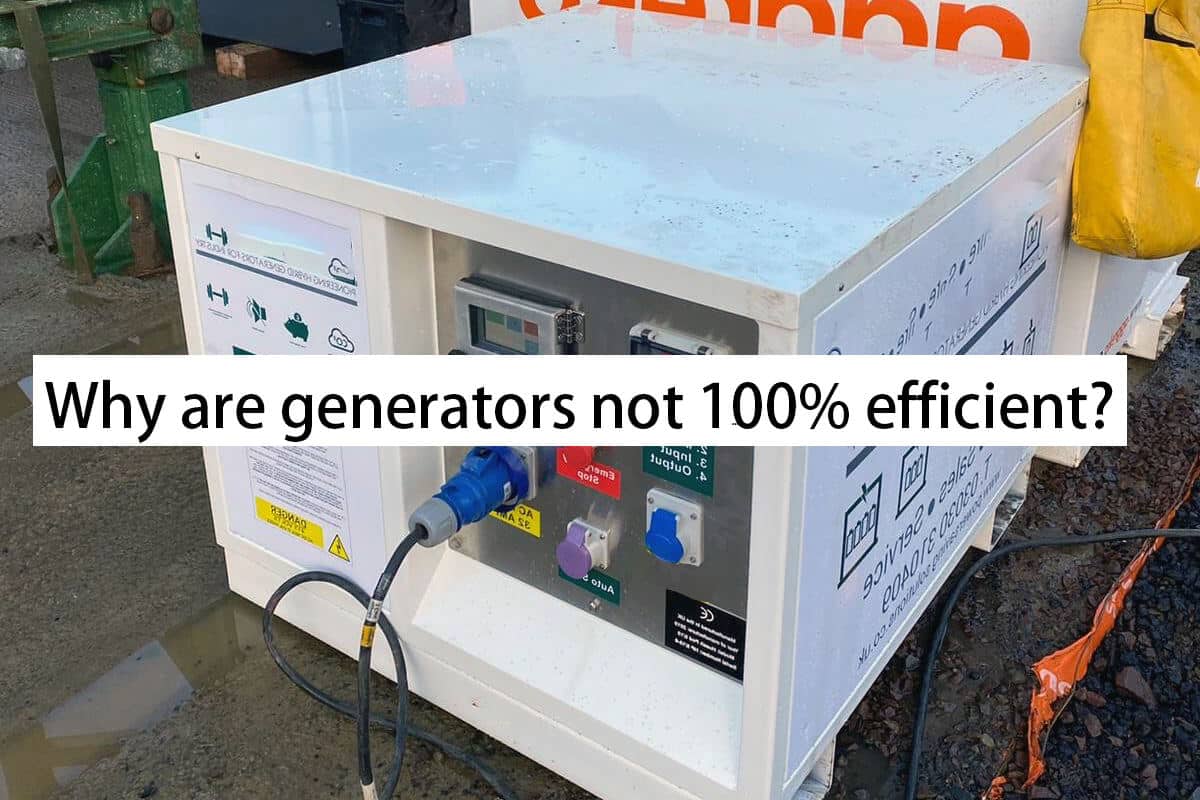Power Generator Oil: How to choose the right lubricant?
- BY BISON
Table of Contents
Power Generator Oil is nothing new under the sun. In fact, it has been around for eons. The oil that powers the generators that supply electricity to homes, businesses, and factories was originally refined from the oils of ancient civilizations. As the world became industrialized, the world’s energy requirements skyrocketed.
In response, oil companies developed the oil that is used in many of today’s generators. Chemists and engine developed the technologies to create synthetically produced gasoline. Today, almost every fuel burned in power plants around the world is synthetically produced, from diesel fuel to jet fuel.

How to pick the accurate oil for generators
Users typically do not pay close attention to what they put into their generator’s oil reservoir. If you are one of them, it is time to make a change.
Not all power generator oils are created equal. A multitude of factors influence their choosing, including generator type, operating conditions, and fuel type. There are many types of power generator fuel in which you can select the best one for your generator. Before selecting one you need to do the research about different types of oil available in the market.
Types of Power Generator Oil
The fuel source determines the type of power generator oil and lubricant used. Based on this criterion, power generators are classified as gasoline, diesel, and natural gas, propane, or hydrogen generators.
Gasoline Generators
Gasoline is the most common fuel type for a wide range of generators, particularly inverter and portable types. Gas generators are usually low-cost and easy to use. As a result, they are an ideal alternative for first-time users and those on a limited budget. They are far quieter than diesel generators, making them appropriate for less stressful work environments.
Diesel Generator
Diesel generators are more efficient and cheaper than gasoline generators since they are less volatile. Diesel can power portable small diesel generators, residential home backup generators, commercial backup generators, light towers, commercial mobile generators, and trailered mobile generators.
Natural Gas Generators
The most popular fuel type for a broad range of generators, particularly inverter and portable models, is natural gas. Natural Gas generators are often inexpensive and simple to operate. As a result, they’re an excellent choice for first-time users and those on a tight budget. They are far quieter than diesel generators, making them suitable for less demanding work settings.
Propane Energy Generators
Propane, often known as liquefied petroleum gas, is a fuel that burns cleanly and has an endless shelf life. It has a higher energy density than natural gas but a lower density than diesel or gasoline. Depending on your needs, you can store propane in tanks ranging in capacity from 20 pounds to hundreds of litres.
Hydrogen Generators
Hydrogen generators are still in their infancy, making them scarce. They are powered by hydrogen gas and have internal fuel cells to increase system efficiency. They are perfect for businesses that require continuous electricity, such as hospitals. They are also useful in rural areas and at home.
What factors need to be considered?
How do you select the best oils and lubricants for your generator? Knowing the type of generator you have, whether commercial, industrial, or household, is only half the battle. The second half is selecting the appropriate oils and lubricants. There are numerous aspects to consider, and here are a few of them.

Viscosity Of Oil
When selecting generator oil, the most important factor to consider is viscosity. It denotes the oil’s resistance to flow and shear. Many factors influence oil viscosity, including water contamination, particle pollution, and the overall form and age of the engine.
Think About The Temperature
As previously stated, generator temperature has an effect on oil viscosity. For example, if you intend to run the generator in extremely low temperatures below freezing, you will require oil types that can withstand the conditions. In that scenario, generator oil with a lower initial number, such as 5W-30, is required. It enhances your generator’s performance at temperatures as low as -28°C.
Read The Manual
Before you simply Google “best oil for generator,” consult your generator’s user manual. Any specs or critical information should be included here. Things like the needed engine oil are frequently included in the manual, so consult it as you narrow down your options.
Be Aware Of The generator Type
You should also know whether your generator’s engine is 2-stroke or 4-stroke. While the latter is common, each engine requires a particular type of oil.
If the owner chooses, 2-stroke engines can combine fuel and engine oil, whereas 4-stroke engines use them separately.
Buy From A Trusted Company
Always utilize power generator oils manufactured by reputed companies. Select engine oil with high-quality certification and performance. When it comes to generator oil, BISON is a trustworthy partner. With over 150 years of established quality, BISON supplies superior commercial and industrial solutions.
They leverage ongoing innovation and expertise to improve security, boost production, and reduce total operating costs. With BISON power generation systems, you may maximize power output, improve operational dependability, and lower maintenance costs.

Tips For Generator Oil Change And Maintenance
- Maintaining the oil in your generator is one of the most straightforward ways to ensure that it works reliably when you need it. From installation to regular oil changes, follow these tips to keep your generator’s engine greased and running properly.
- After installation, check the oil level in your generator. Your generator may have arrived with no oil. You will need to add it if your installer does not contain it.
- When it comes to oil kind, always stick to the manufacturer’s recommendations. Depending on the engine and fuel type, different oils are required for different generators.
- Consider the temperature at which your generator will be operating. This indicates that oil has a lower viscosity when it is cold and a higher viscosity when it is heated. Perkins advises using “the greatest oil viscosity available to suit the requirement for the temperature at start-up.”
- Your initial generator oil change will be completed sooner than subsequent oil changes. Consult your owner’s manual to find the exact number of hours between oil changes. It might happen as soon as eight hours into your break-in.
- Change the oil in your generator on a regular basis, according to the instructions in your owner’s manual. For smaller gas generators, this may be every 50 hours. Large diesel generators might only need oil changes every 500 hours.

- Replace your oil filter when you change the oil in your generator, if applicable. If necessary, top out the oil reservoir when refuelling.
- Keep additional oil and filters on hand so you can replace the oil on a regular basis during power shortages.
- After a power outage that necessitates your generator to run for an extended amount of time, check your oil levels and replenish it if necessary. You’ll be ready the next time your generator is needed.
- To protect the engine, many generators shut down automatically when the oil level lowers. If your generator is not working properly, check the oil reservoir and top off or change the oil before proceeding with further diagnostics.
- Clean up any dirt and debris before checking oil levels or performing an oil change.
Power Generator Oil FAQ
Do generators need lubricating oil?
Yes, oil is required to effectively lubricate engine parts in generators. Oil decreases friction and aids in the smooth operation of the generator.
What are some important factors related to power generator oil?
The important factors are Power generator oil type; Power generator oil types using the best oil for power generators, Power generator oil recommendations, Power generator oil change interval, Power generator oil capacity, Synthetic oil for power generators, Diesel power generator oil type, Gasoline power generator oil type, Natural gas power generator oil type, Power generator engine oil, Power generator oil filter, Power generator oil change frequency, Power generator oil type chart, and Power generator oil type recommendation.
How Do You Change the Oil in a Generator?
To begin, boil the old oil to make it easier to drain. Then, using blocks, raise the generator and carefully unhook the spark wire. Remove the old oil filter and the oil stopper. Replace the oil and tighten the plug. You should be alright if you reconnect the spark wire.
What Happens If Not Enough Oil Is Used?
Your runtime will be severely reduced if you do not have enough oil. In addition, it will provide insufficient cleaning and cooling, leading to engine overheating.
When Should You Change the Oil in Your Generator?
Ideally, the oil should be changed after the first 20 to 30 hours of operation, and then every 100 hours after that. Synthetic oils should be replenished after 200 hours.
contact us
Please complete our contact form and we will soon get back to you with expert advice.
business
Get in touch to speak with our experts!

Diesel generator and its major components
Learn about the major components of a diesel generator, working principle, types and lots more in this detailed guide by BISON. Let’s get started.

What causes a generator to under voltage?
This blog will explore the most common causes of generator under voltage—such as engine issues, worn components, poor maintenance, or improper electrical load

how to make portable generator power clean
Learn how to turn your portable generator into clean energy.BISON’s Clean Generator Power Guide offers several ways to clean the dirty spots on your generator!

How does the diesel generator cooling system work?
The cooling system of a diesel generator is critical to the normal operation and service life of the generator. Learn about diesel generator cooling systems with BISON’s experts.

wet stacking in diesel generators: causes and solutions
BISON explores the causes and effects of wet stacking, its impact on diesel generator performance, and offers practical solutions to lessen these effects.

why are generators not 100% efficient?
The efficiencies of the generators are not 100% because part of the energy is lost as heat during the generation process.







